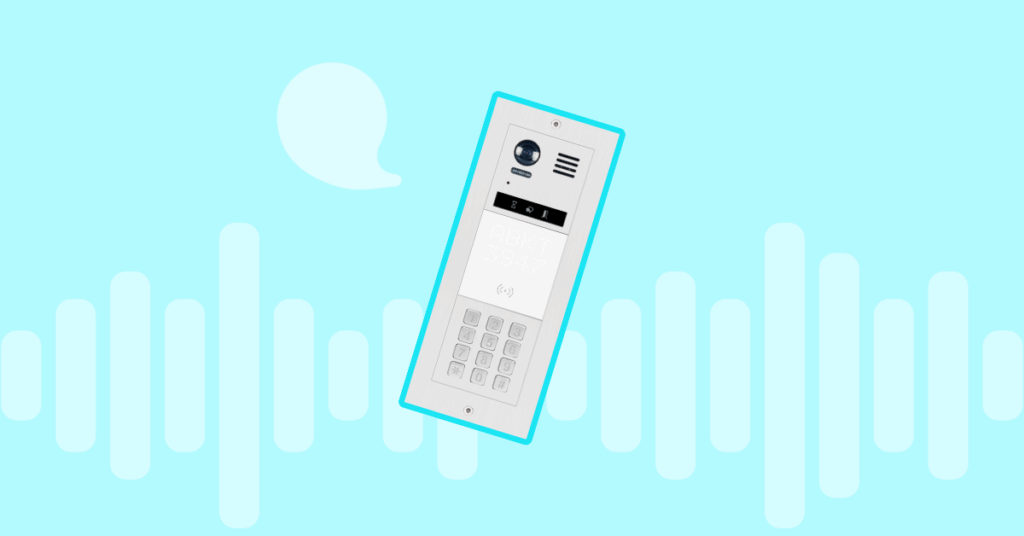
Table of contents
Despite the growth of online communication channels such as chat and email, voice is still king. Voice is the fastest and simplest way for not only employees in your company to communicate with each other wherever they are, but also for businesses to communicate with their customers. While some customer questions can be answered online, many still have specific questions and prefer the ‘human touch’ of speaking to a real person.
This means that an unreliable business phone service can not only damage efficiency and productivity between employees but also result in poor customer service and experience. But how do you know what constitutes a reliable phone system?
Choosing a reliable business phone system may seem daunting, but you don’t need to be an expert to spot a good phone system. Follow our simple practical guide below to help you identify the best phone system for your business.
You Need a Reliable Business Phone System
Choosing the right business phone system essentially comes down to two choices: traditional landlines through a service provider contract; or a Voice-over-Internet-Protocol (VoIP) service. Each option has its own uses, so it depends on how your business works and what the phone system is used for. Landlines are essentially desk-bound systems that require a traditional wired connection from the phone wall socket into the operator’s public network. In contrast, VoIP solutions use an IP phone or ‘softphone’ and convert voice communications into data packets for transmission down your broadband line. VoIP systems also offer advanced features and capabilities.
Landline vs. VoIP Phone Systems
The only way to decide which one is the best for your business is to research the key features and benefits offered by both and then consider which option will best suit your business needs. For example, is reliability your utmost consideration, or do you need more features, or perhaps cost is the main factor driving your decision, and what about security? The following sections outline the key features and benefits of landlines and VoIP systems, in order to help you make your decision.
How They Work
A landline telephone uses a metal wire connection, usually copper, or fiber optic to transmit analog voice signals through an operator’s network from one phone to another. Landline phones are the fixed phones, connected through a wall socket, that we have all grown up with. Generally, they are powered through the line rather than via an electric socket.
Landline phones are generally deskbound. They may have cordless handsets, however, the base station will always be connected to the wall socket. Landlines are operated by traditional incumbent operators, such as BT or AT&T, and are supplied under contract – either as single or multiple lines – to these providers, which is usually paid on a monthly basis.
A VoIP service, on the other hand, requires an IP phone – or softphone – and refers to phone calls that are made over the Internet, rather than through a regular landline or mobile network. Analog signals are converted to digital and the data then sent over high-speed broadband to its destination. Skype is probably the best-known example of a VoIP service.
The end device can be either a traditional landline with a VoIP adapter connected to the wall socket, or a ‘softphone’, which is essentially any device running VoIP software – so it could be a desktop handset, a computer or an app on a smartphone, which means much greater flexibility. Desktop VoIP phones are usually powered by electricity, which may be something to consider as outlined later in this article.
Arguably, landlines offer better resilience as they are not powered by electricity, meaning that if there was a power outage for any reason, your business will not grind to a halt. Another argument for landlines is that they provide better voice quality. However, this is not necessarily the case. Because VoIP data is transmitted over the internet, it can be affected by a poor connection or heavy network traffic. Conversely, if the broadband connection is fiber optic, the voice quality on VoIP can arguably be better than a landline.
For those businesses with a desk-bound workforce that do not need advanced capabilities, such as flexible locations and conferencing, and are basing their decision on absolute resilience and security, landlines may be the best option.
However, for a business in which many employees are making and receiving calls constantly, VoIP is a better option as it avoids the cost of paying for and renting multiple landlines. Also, for more agile companies, with a remote and mobile workforce, or those who need to project a professional image of a much larger company with advanced features such as virtual switchboard, single number, call routing, conferencing, and so on, VoIP may be the best and cheapest option.
VoIP also makes it much easier to onboard or delete new users, according to fluctuations in demand, and can scale rapidly to meet business requirements during peak periods. With landlines, call capacity is limited by the number of lines you have. You may also be tied into a 12-month contract with a landline, while many VoIP service providers offer a 30-day rolling contract, which may be useful for businesses that have a high seasonal turnover or peaks and troughs in demand.
It’s also worth noting that while landlines can offer many of the advanced features offered by VoIP, they require an on-premise PBX to do so. A PBX requires expensive hardware, and technical expertise to provide maintenance and upgrades.
Comparing Cost
One of the main advantages of VoIP, alongside it’s advanced features and flexibility, is the cost. Landlines require an initial investment in expensive hardware and line setup, as well as maintenance of the hardware going forward. Calls are also cheaper.
As a rough guide, VoIP systems can be around 50% cheaper than landlines, depending on the number of lines, calls made, and call bundles. Installing a business landline can cost as much as $130, but the more lines you opt for, the cheaper it becomes. Some providers may install a landline for free if you are prepared to haggle and if, for example, you also take a broadband line from them for your internet connection.
On top of that, line rental can cost around $15-$20 per month, so for those businesses requiring multiple lines, the cost can quickly mount up with landlines. It’s also worth considering whether most of your calls will be made to local numbers or international, as this will affect the cost considerably. For example, unlimited peak calls cost around $8 extra per month, while unlimited anytime calls cost around $15 extra per month with a landline package.
VoIP on the other hand is considerably cheaper, with entry-level VoIP phone packages on an annual contract available from $4-6 per month, or $13 per month for rolling monthly payments.
Call costs are also at least 30% cheaper with VoIP systems. For example, a call to a UK number from a VoIP phone can cost around $1 per minute, compared to up to $12 per minute with a landline. Furthermore, VoIP calls are often charged on a per second basis. International calls over VoIP may also be the same cost as a local call. Of course, calls made between VoIP numbers – that is, over an internet connection – are free.
Technology Differences
As discussed, landlines require traditional hardware, which also needs maintenance and upgrades over time adding to the initial investment costs. Adding an on-premise PBX to the system, to gain advanced features and many lines, also means expensive initial investment and on-going maintenance.
VoIP calls are made using software, which can be updated free by the VoIP service provider and means that businesses have a much wider choice of equipment that they can use to make VoIP calls.
Landlines do offer tighter security, however, as the only way they can be ‘hacked’ is by being ‘tapped’ by an external agency. VoIP systems using software and an internet connection are therefore more prone to being hacked. Although this is still rare, many VoIP service providers offer different levels of software security for their systems.
Available Features
In general, both landlines and VoIP systems offer some basic features, such as Call Forwarding, Blocking, Voicemail, Three-way Calling (although only VoIP can handle multiple-call conferencing), and Waiting Messages, but VoIP systems make it much simpler to manage and control these features.
VoIP definitely has the advantage here, offering advanced features such as Reception console, IVR, Call Recording, Conferencing, Ring Groups, and Virtual Numbers as standard. Landlines would require a costly PBX system to offer similar capabilities.
So, for example, a business that handles lots of incoming customer calls that need to be handled in a timely manner will benefit from Ring Groups, which ensure that if one employee or customer agent is unavailable, the call will be instantly rerouted to the next available employee. Additionally, Ring Groups can be set to include only those employees that are qualified or experienced enough to respond to specific calls.
A Virtual Number, meanwhile, allows a virtual company (i.e. without a dedicated office) or a business with a highly mobile or remote workforce to maintain the image of a single, professional business, as it is not tied to a physical location or a single device. It means that any employee can respond to an incoming call from a customer wherever they are on any VoIP-enabled device, but the caller believes that they are dialing a single, physical location.
Reliability
Both systems offer 99.9% reliability. The only advantage that a landline can offer is during a power outage. Traditional phones will be unaffected as they are not connected to the main power source. VoIP systems have become increasingly reliable and allied with increasing penetration of fiber optic and high-bandwidth broadband, will continue to match and even exceed the reliability of landlines.
VoIP Phone Service Providers
Business looking for a VoIP service provider should look for a well-established vendor with experience of working with small and large businesses. Look for a provider that doesn’t tie you into a long-term contract and that offers a broad range of features included in the package. Avoid those that benefit from premium features and charge extra for them.
VoIP systems should be easy to use and install, so choose a VoIP service provider that offers an easy-to-use, single bundled package, with a simple, low-cost monthly fee, with no hidden extras. The right solution should not require a degree in IT to install and setup.
Furthermore, strong customer support is essential from a VoIP service provider for those times when businesses may need a little extra help in managing their system, for example, to optimize some of the advanced features offered.
Conclusion
VoIPstudio is a no-hassle hosted VoIP solution that offers a simple, easy to install and use business phone system, offering multiple advanced telephony features in a simple, monthly package. Our solution can be tailored to meet your exact requirements, and unlike some providers, we won’t just ‘sell and run’. Our proven solution is backed up by our strong track record of providing excellent 24×7 customer support – just read our TrustPilot reviews to see our feedback.
We don’t tie our customers into long-term contracts – we offer a 30-day rolling contract – and setup only takes around 10 minutes. We offer reduced call rates, free internet calls, and integration into a broad range of CRM systems, allowing you to take advantage of your existing customer database, all without any disruption to your day-to-day business.
If you’re looking for a reliable, professional business telephony system, that will significantly reduce the costs of your calls and line rental, provide mobility and the flexibility to grow with your business, along with exceptional customer support, then get in touch with a VoIPstudio representative today. What are you waiting for?
More from the blog
Want to improve your business communication?
Unlock enterprise-class call center power at affordable prices – no hardware, no delays, no surprises!






